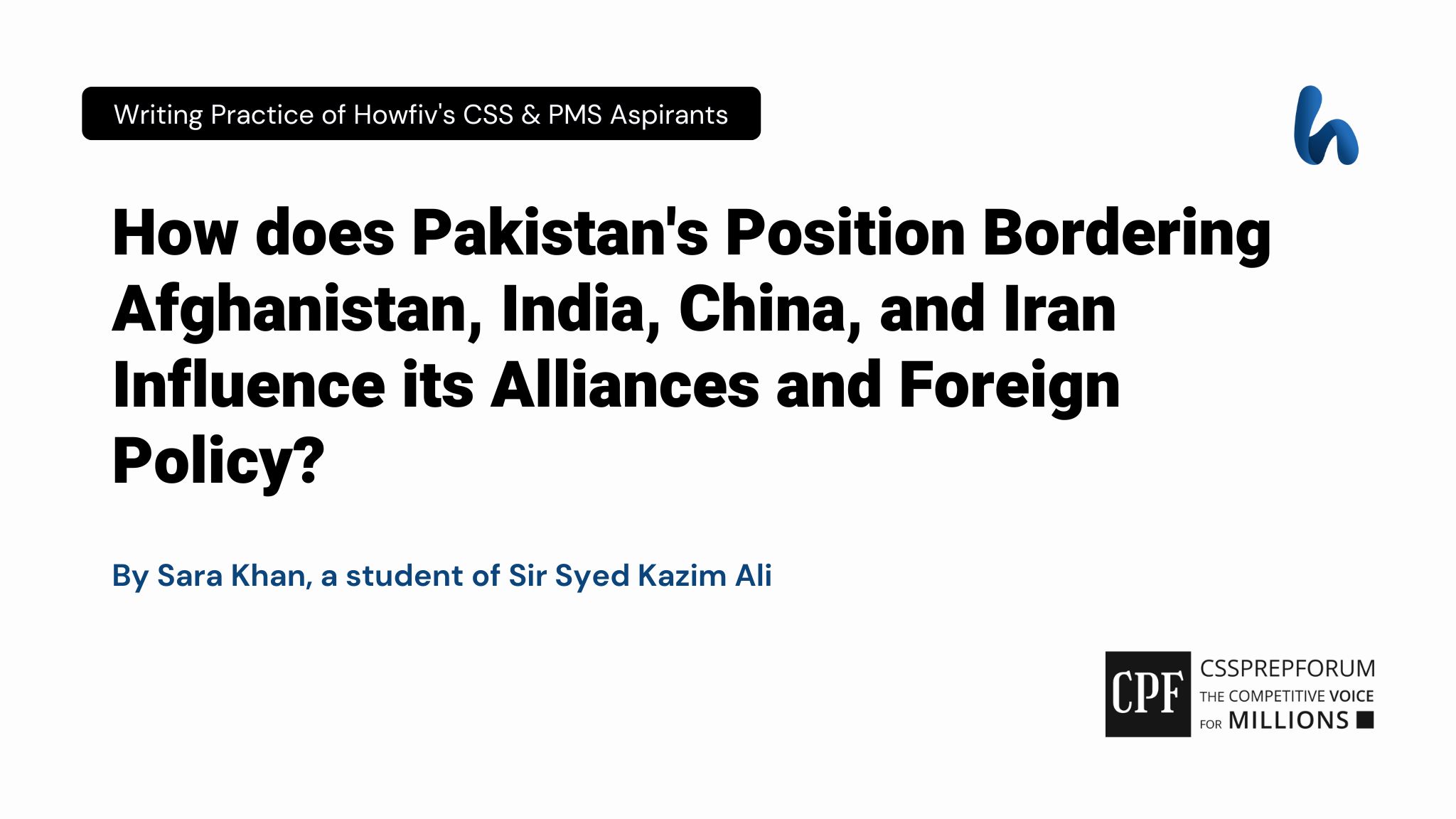The horrible outbreak of water-borne diseases owing to the recent floods in Pakistan has wreaked havoc on the already displaced and distraught flood victims in the drowning country by putting them in more agony as they battle the life-threatening symptoms. Although the natural hazard could not be prevented, certain precautionary measures to curb the inexorable catastrophe are the need of the hour to avoid another pandemic – one that might even wipe out a third of the country’s population.
Pakistan, paying the price of the unbalanced greenhouse gas emission by the world’s superpowers – mainly the United States of America and China – is undeniably experiencing the worst impacts of climate change in the globalized world. It has directly affected thirty-three million lives in the victim country. The environmental disaster has not only caused the country infrastructural damage, loss of lives, and destruction of crops and livestock but also brought significant health crises, unfolding the spread of water and vector-borne diseases including Malaria and Dengue.
The ongoing disease outbreaks have aggravated the health crisis in the country. In this regard, the World Health Organization has warned of significant public health threats facing affected populations. The risks include further spread of Malaria and Dengue fever.
“WHO is working with health authorities to respond quickly and effectively on the ground. Our key priorities now are to ensure rapid access to essential health services to the flood-affected population, strengthen and expand disease surveillance, outbreak prevention and control, and ensure robust health cluster coordination,”
– Dr Palitha Mahipala, WHO Representative in Pakistan
It is very saddening to write that, despite untiring services and responses of governmental institutions, national and international organisations, frontlines workers and medical teams, and sanitation groups, a rise in the cases of Diarrhoea, Malaria, Dengue fever, etc., is being observed in the medical camps and hospitals.
” Relief and rehabilitation in displacement settlements will remain a challenge; already disease outbreaks are being reported from most affected areas.”
-Arif Jabbar Khan, Water Aid Pakistan
Although the current situation is not showing any mercy in the lives of the Pakistani people, negligence is playing a vital role in aggravating the health crisis. Thus, Pakistan’s individuals must take all the possible precautionary measures to fight this water battle. The following article deals with the causes, effects, and suggestive measures to deal with the major water-borne diseases, i.e., Malaria and Dengue, spread by the prevailing floods in the country.
a. Malaria
Malaria is a disease caused by a parasite that infects a certain type of mosquito called the female Anopheles mosquito. It feeds on humans and transmits the parasite into their blood. It can mainly be caused by five species of the genus Plasmodium (P. falciparum, P. vivax, P. ovale, P. malaria, and P. knowlesi). Among them, P falciparum is the most dangerous and has the highest morbidity and mortality, occurring occasionally within 24 hours of the onset of symptoms.
When the infected mosquito bites a person, the parasite enters its victim’s bloodstream. The parasite then moves to the liver, grows there, and is capable of remaining in a dormant stage for years. After the parasite has grown in the liver, it leaves the liver and enters the red blood cells (RBCs) present in the bloodstream. It multiplies there and destroys the RBCs of the infected person. At this stage, a person gets malarial symptoms.
Signs and Symptoms of Malaria
Signs and symptoms of malaria may include
- Fever
- Cough
- Chills
- Headache
- Nausea and vomiting
- Abdominal pain
- Diarrhoea
- Bloody stools
- Rapid breathing
- Rapid Heartbeat
- Anaemia
- Muscle pain
- Convulsions
- Coma
As mentioned by the Mayo Clinic,
“Some people who have malaria experience cycles of malaria “attacks.” An attack usually starts with shivering and chills, followed by a high fever, sweating, and a return to normal temperature.”
Malaria, if left untreated, can be fatal and may lead to kidney failure, convulsions, confusion, coma, and even death.
b. Dengue
Dengue is a viral infection transmitted through the bite of the virus-infected mosquito. It is caused by four dengue viruses spread by the Aedes aegypti mosquito. People generally do not experience signs and symptoms of a Dengue infection. However, although less common, some people develop severe dengue symptoms that usually begin 4 to 10 days after the infected mosquito’s bite.
Signs and Symptoms of Dengue
According to the Mayo Clinic, dengue fever causes a high fever of 104 degrees Fahrenheit (40 degrees Celsius) and any of the following signs and symptoms
- Headache
- Muscle, bone or joint pain
- Nausea
- Vomiting
- Pain behind the eyes
- Swollen glands
- Rash
Sometimes, the symptoms are very mild and mistaken for minor diseases like flu and other infections. Severe dengue happens when your blood vessels become damaged and leaky. And the number of clot-forming cells (platelets) in your bloodstream drops. This can lead to shock, internal bleeding, organ failure, and even death. Warning signs of severe dengue fever, a life-threatening emergency, can develop quickly. The warning signs usually begin within the first two days after your fever goes away and may include
- Severe stomach pain
- Persistent vomiting
- Bleeding from your gums or nose
- Blood in your urine, stools or vomit
- Bleeding under the skin, which might look like bruising
- Difficult or rapid breathing
- Fatigue
- Irritability or restlessness
When to see a doctor
Severe dengue fever is a life-threatening medical emergency. Seek immediate medical attention if you’ve recently visited an area where dengue fever is known to occur, had a fever, or developed any warning signs. The warning signs include severe stomach pain, vomiting, difficulty in breathing, bleeding nose and gums, and blood in vomit or stools.
The current outbreak of water-borne diseases has created an alarming situation in Pakistan, for the country is drowning in contaminated water. Sindh Information Minister Sharjeel Memon said that as many as 3,072 people were diagnosed with malaria and 1,098 others with dengue during the current month in the province.
Ways to prevent the spread of dengue
In such challenging conditions, individuals must know the possible ways to prevent the spread of the health threat.

1. Use Insect Repellant
Use Environmental Protection Agency (EPA) registered insect repellents with one of these active ingredients: DEET, Picaridin (known as KBR 3023 and icaridin outside the US), IR3535, Oil of lemon eucalyptus (OLE), Para-menthane-diol (PMD), Undecanone, Permethrin, etc. These repellents are proven safe and effective, even for pregnant and breastfeeding women. Mosquito repellents such as Mortein and Kingtox contain the ingredient Permethrin that paralyzes the mosquito, and in this weakened state, the insect generally disengages, falls off, and, eventually, dies.
Likewise, Mospel Cream (45ml) contains Diethyltoluamide (DEET) as an active substance. DEET confuses and interferes with the receptors on the mosquitoes’ antennae, which deters mosquitoes from landing on the skin and biting.
Mortein, Kingtox, and Mospel lotionsare available in Pakistan’s medical stores and online shops. You should use them both indoors and outdoors for your protection.
Moreover, follow the following routine measures to keep yourself safe from danger.
2. Cover Up!
Wear loose-fitting, light-coloured, long-sleeved shirts or kameez and pants or shalwar. For your home, make sure all windows have screens and fix any holes. Also, use mosquito nets and rackets.
3. Stay away from Flood Water.
Remove small pools of standing water around your home, and wash your hands after contact with floodwater. Also, be sure that the children wash their hands with soap and water often, especially before meals. Further, do not allow children to play in floodwater areas or with toys that have been contaminated by floodwater and have not been disinfected. Finally, do not bathe in water that might be contaminated with sewage or toxic chemicals. This includes rivers, streams, or lakes contaminated by floodwater.
4. Effective Natural Products and Myths
Studies have shown that some natural products help prevent mosquitoes. For example, Neem contains an active compound called Limonoids, an effective pest repellant against sandflies and mosquitoes. Diluting 50 to 100 mm of Neem oil in water, oil, or lotion can work to repel mosquitoes. Although spreading coffee and tea throughout the mosquito breeding areas keep you from being bitten, studies have shown that they do limit the reproduction of mosquitoes.
5. Fogging
Fogging works well to fight active mosquitoes and is beneficial during outbreaks and peak biting times.
6. Clean your environment
Keep your surroundings clean as it restricts the mosquitoes’ growth in the first place. Clean and Mop your house every day. Get rid of stagnant water and avoid storing water in pots, coolers, and tanks because these are breeding grounds for mosquitoes.
7. Maintain Hydration
Make sure to be hydrated. Hydration and healthy food help boost immunity and keep you safe from infection.
8. Spread Awareness
Above all, spreading awareness among people can help break the disease cycle and is an essential step to staying safe from the disease.













